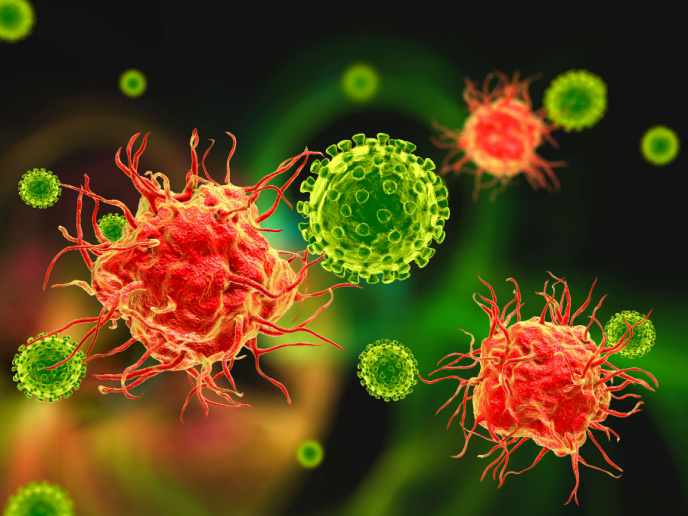Targeted cell therapies suppress undesirable immune responses
Haemophilia A is the most common form of haemophilia, a group of inherited disorders that affect blood coagulation or clotting. Type A is caused by insufficient levels of a blood clotting protein called factor VIII, resulting in excessive and protracted bleeding either spontaneously or because of minor trauma. The severity of the disease depends on the amount of factor VIII deficit. Factor VIII replacement therapy is the treatment of choice for people with severe disease. However, approximately 30 % of those receiving it begin to produce neutralising antibodies (inhibitors), meaning their bodies stop recognising the factor VIII treatment as part of their normal blood and inhibit its action. The Swedish SME Idogen(opens in new window) initiated the EU-funded ANTHEM project to develop the company’s first tolerogenic cell therapy (producing long-term immune tolerance to specific molecules or cells) targeting factor VIII tolerance to enable life-saving treatment of haemophilia.
Harnessing tolerogenic dendritic cells
Idogen’s treatment is based on dendritic cells(opens in new window), a specific type of white blood cells that play an essential role in immunity and immune tolerance. They control other immune system cells’ recognition of what belongs in the body and what is foreign. Dendritic cells trigger the body’s immune response when exposed to bacteria or viruses and ensure the immune system does not attack the body’s own healthy cells. The dendritic cells that have immuno-suppressive properties against certain antigens, thus preventing an immune response to the body’s healthy cells, are called tolerogenic. “Idogen’s technology focuses on developing tolerogenic dendritic cells that are programmed to induce tolerance of the immune system to our preselected molecules or antigens. This is done by exposing the dendritic cells ex vivo to the antigens they should induce tolerance against together with a proprietary tolerance inducer,” explains Christina Herder, acting Chief Executive Officer of Idogen.
Overcoming obstacles leads to expanded applications
Previous preclinical experiments had indicated that the company’s original tolerance inducer, zebularine, was effective. In early 2019, subsequent data failed to confirm the effect. The company initiated a comprehensive systematic evaluation of alternative tolerance inducers to identify a more effective method to generate tolerogenic dendritic cells. “As a result, we have established a new method of development of the company’s cell therapy programmes(opens in new window). It is based on a carefully selected combination of tolerance-inducing substances that will replace zebularine. The cell therapies now address not only haemophilia (IDO 8) but also kidney transplant (IDO T) and autoimmune diseases (IDO AID),” states Herder.
Good laboratory practice (GLP), good manufacturing practice (GMP) and clinical trials
The ANTHEM project has helped the team set up the GMP protocols for the cell therapy as well as conduct the GLP safety programme required for clinical studies. In parallel, they developed a clinical trial protocol and prepared the documentation required to submit the Clinical Trial Application. In April 2022, Idogen obtained regulatory approval for the Phase I/IIa study in both Norway and Sweden, which will begin soon. Idogen’s pioneering tolerogenic cell therapies will counteract attacks by the patient’s immune system on therapeutic agents, transplanted organs or the body’s own cells or tissue. They will soon be supporting the success of modern therapies and remove a monumental barrier to healthy living for people with diverse diseases and conditions.







